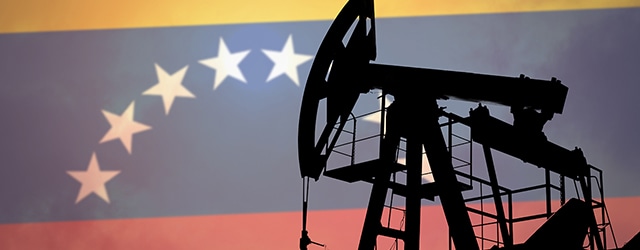Venezuela's state oil company is struggling to stay afloat.

Venezuela’s state oil company PDVSA is negotiating with banks about a potential club loan to settle $1.6 billion of bond debt amid growing default risks triggered by tough new U.S. sanctions and now a major power blackout.
“They are talking to several banks about a possible syndicated loan,” an emerging markets investor told Global Finance, adding that the national electricity outageis hitting production and refineries. “It looks like production is going to zero.”
Indeed, the electricity outage has also crippled Venezuela’s oil exports, much of which are currently in limbo as top U.S. customers scramble to return roughly 6 million of Venezuelan crude they are banned from receiving due to sanctions imposed by the Trump administration.
Venezuelan President NicolásMaduro blamed the electricty outageson USsabotagewhile opposition leader Juan Guaidó—recognized by the U.S. and 65 other governments around the worldas the country’s interimpresident according to the constitution—declared a national emergency and called for greater protests to oust Maduro.
The investor said PDVSA’s dire situation may have prompted it to seek alternative sources of funding as a $70 million coupon on its 2020 notes is due in April.
While those notes—totaling $1.6 billion—are backed by PDVSA’s 50.1% stake in US-basedrefiner Citgo, they are unlikely to immediately shore up its cash difficulties, sources said.
This is because Citgo is blocked from sending any money or dividends to PDVSA by sanctions while a sale of PDVSA’s stake could also be blocked for similar reasons.
A ratings analyst said the cash-strapped oil producer will likely struggle to find banks to print a new loan unless it comes up with “very solid collaterals or guarantees from Russian or Chinese companies,” that could lend their assets as collateral to support Maduro’s administration.
Alternatively, Russian peer Rosneft could also buy some of PDVSA’s 2020 bonds, easing some of that burden, said another analyst.
Under either scenario, a default on the notes looks increasingly likely, with bondholders having little recourse.
“There have been some efforts to include Citgo shares in bondholders’ claimable assets but the legal system in Latin America is not particularly supportive of bondholders, ” said a ratings analyst. “These are not the best of circumstances.”



